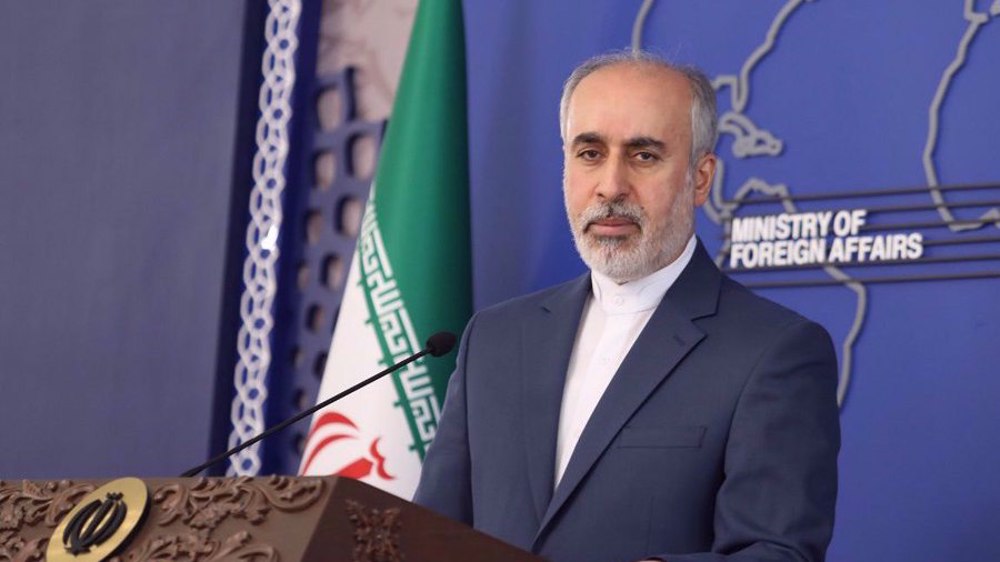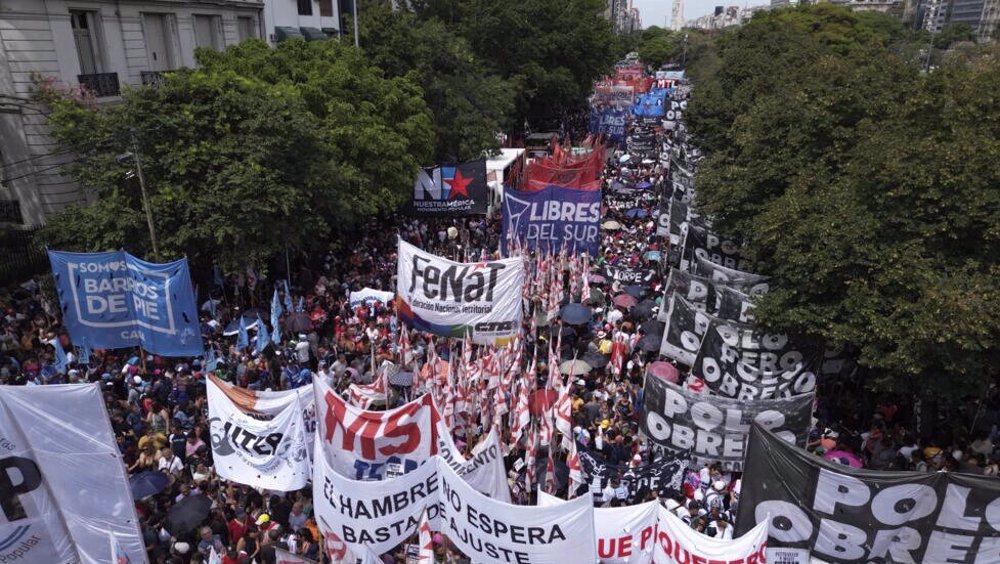1000s in Argentina protest government reforms, job cuts
Thousands of Argentine union workers have taken to the streets of the capital, Buenos Aires, in protest against the government’s economic reform policies and state job cuts.
The crowd of protesters marched to the main square of Buenos Aires, Plaza de Mayo, on Thursday to show their dissatisfaction with climbing inflation and utility rates under President Mauricio Macri.
State workers, teachers and physicians were holding a 24-hour strike in support of leftist social leaders, who led the massive rally.
They called on Macri to re-open commissions to discuss differences between the government and union workers.
State Workers’ Association (ATE) Secretary-General Hugo Godoy said they will sustain pressure on Macri’s administration until he yields to their demands.
“We who lose our jobs are poor. We who work for miserable salaries are poor. And this is making thousands of Argentine indignant,” he said. “One fourth of a million people have lost their jobs in the last eight months (since President Mauricio Macri took office) and that must change.”
Godoy further said, “If the government doesn't take measures, we will multiply our mobilizations and they will be stronger because we cannot accept that they take us to collapse which is where they are taking us.”
“It is Macri's obligation,” he added, “to change that and, if not, it is the workers’ obligation to multiply the struggle so he understands and does it.”
Center-right Macri began his term in December 2015 with a wave of free-market reforms.
He fired thousands of government workers, cut energy subsidies, and lifted currency controls in a move that weakened the peso by 30 percent. He also lowered import barriers and freed grains exports after years of tight curbs.
His policies have provoked a number of anti-government protest rallies across the country.
The Argentine president, however, remains convinced that his economic policies will eventually curb inflation and pave the way for generating more jobs, but his opponents argue that such measures would only help big businesses and hurt the poor.
VIDEO | Press TV's news headlines
Israeli strikes on north Gaza hospital ‘extremely dangerous, terrifying’: Director
VIDEO | Yemen targets Tel Aviv with Palestine 2 missiles
Pezeshkian: Iran resolved to complete North-South Transport Corridor
VIDEO | Iran-Syria: For Resistance
Qassam Brigades claims killing 3 Israeli troops in northern Gaza
More alive than ever: Sayyed Hassan Nasrallah's legacy grows stronger in martyrdom
Occupation of Syria’s highest peak Mount Hermon part of ‘Greater Israel’ project











 This makes it easy to access the Press TV website
This makes it easy to access the Press TV website